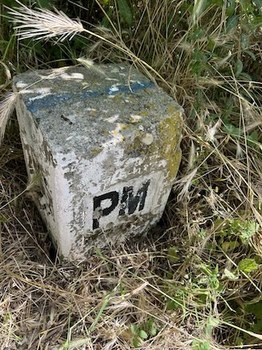
Southern Balkan invisible spatialities
By Viki Mladenova

From the beginning of April until mid-June, I conducted preliminary research in North Macedonia. Part of the “invisiblized spatialities” along the Balkan Route, the territory and borders of North Macedonia are under-researched in within the Route. Through this research I aimed to identify the changing dynamics of migration in North Macedonia since the so-called ‘long summer of migration,’ back in 2015-16.
My research methods included interviews, participant observation and informal conversations, with relevant stakeholders working on migration issues on Macedonian territory, including government institutions, NGOs, photojournalists, consultants, and academics. I drew on my prior knowledge and networks from my experience as a border-areas monitor in 2015-16. Throughout this period, I was based in Skopje but also traveled to other key sites.
Two of the important field visits were to the Transit Centres Vinojug and Tabanovce, near the borders with Greece and Serbia respectively. These visits were conducted together with Alexandra Rijke. We employed participant observation and spoke with people working in the centres. We learned about the reception procedure, as well as how the centres are linked to asylum procedures. Besides visiting the centres, Alexandra and I observed the surrounding areas near the border as well as nearby towns and villages.
North Macedonia is still a transit cross-roads and informal mobilities remain a reality, despite the closing of the “formal” Balkan Route in 2016. Institutionally, the formal “migration management” infrastructure in North Macedonia remains dependent on the idea of a ‘crisis.’ More specifically, the two transit centers lack a clear normative legal basis but are governed via a ‘state of crisis’ first declared in 2015. This ‘crisis’ status results in ad-hoc procedures and practices, that can both facilitate and impede people from crossing or staying in North Macedonia. Regardless, the country is still crossed—and is sometimes a central enabler of migratory crossings (in terms of providing either rest or simply the informal possibility for continuing onwards in “the Game”).